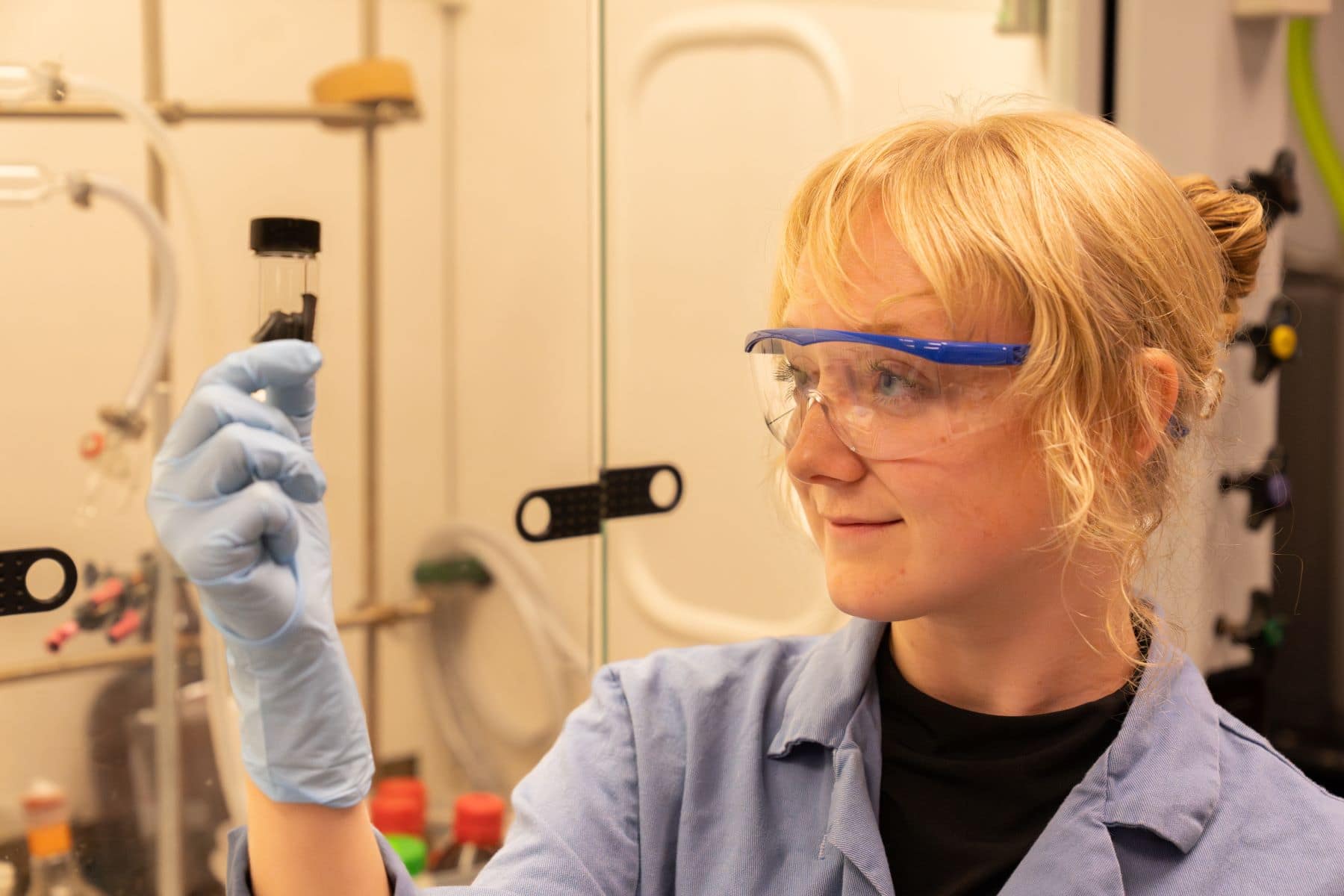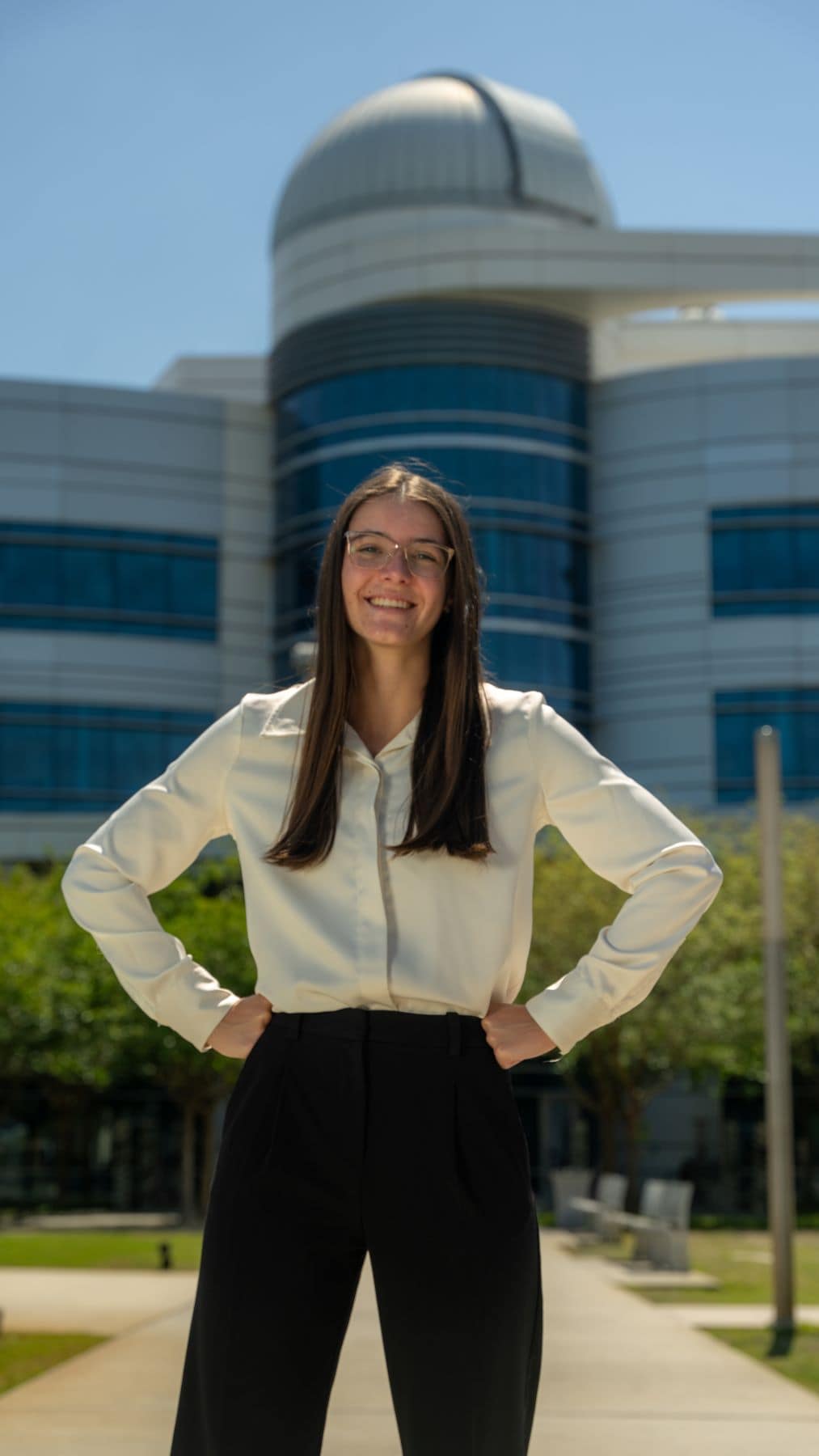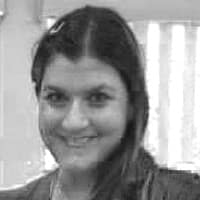Two Embry-Riddle Undergraduates Named Goldwater Scholars

Two Embry-Riddle Aeronautical University students have been awarded Goldwater scholarships, marking the first time the university has had multiple scholars in one year.
Aerospace Physiology junior Natalie Brattain and Space Physics sophomore Grace Gratton were selected by the scholarship program, which aims to support college sophomores and juniors poised to become the next research leaders in the natural sciences, mathematics, and engineering.
“The Goldwater scholarship is considered the most prestigious undergraduate STEM research award in the United States,” said Jennifer Schaeffer, director of the university’s Office of Prestigious Awards and Fellowships at the Daytona Beach Campus. “I am incredibly proud of these two exceptional students, as well as all seven of our nominees.”
This year, nearly 450 academic institutions nominated 1,350 students for the Goldwater Scholarship program. The Barry Goldwater Scholarship and Excellence in Education Foundation selected 441 recipients, who will receive up to $7,500 in support for the 2025-2026 academic year.
Since 2006, Embry-Riddle has had five Goldwater scholarship recipients, said Schaeffer.
Meet the Scholars
Natalie Brattain
For Brattain, the Goldwater Scholarship has further encouraged her to achieve her goal of earning her Ph.D. in Bioastronautics and discovering ways to make humans safer in space.
“Getting the Goldwater Scholarship encourages me that I’m doing the right thing,” she said. “I want to work on creating countermeasures that benefit astronaut health during spaceflight.”
Brattain is working with faculty mentor Dr. Foram Madiyar, assistant professor of Chemistry, on research using biosensors to detect spaceflight-associated Neuro-Ocular Syndrome and to monitor Intraocular Eye Pressure.
Brattain, from Crawfordville, Florida, and married to Daniel, is also collaborating with Madiyar this summer on a NASA-funded project that involves research on a self-healing polymer for space applications.
"Mentoring Natalie has been a privilege. She tackles complex, space-medicine questions with the curiosity of a scientist and the discipline of a seasoned professional,” said Madiyar. “Her ability to synthesize hands-on experiments and collaborative leadership into tangible research progress is rare at the undergraduate level, and it leaves no doubt that she will make meaningful contributions to human-spaceflight health in the years ahead.”
Brattain, who serves as vice president of the Embry-Riddle Orbital Research Association, has also been involved in research related to elevated intraocular pressure in microgravity environments, and she serves as a co-project lead for the Tardigrade BioExploration Reproduction Research Satellite project.
Immersion in undergraduate research gives students an early command of experimental design, data analysis and scientific communication, said Madiyar. Additionally, it builds mentoring networks that can lead to awards and internships, while fostering the confidence and professional identity that students need to excel in graduate studies and future aerospace medicine research careers.
“Dr. Madiyar is really the reason I have done so well at Embry-Riddle, because she has given me so many great opportunities,” said Brattain.
Grace Gratton
 Space Physics sophomore Grace Gratton was also chosen as a 2025 Goldwater Scholar. (Photo: Embry-Riddle/Grace Gratton)With experience in both systems engineering and solar wind research, Gratton said the Goldwater Scholarship has helped her define a career path that led to an internship this summer in space weather modeling at the Air Force Research Lab in Albuquerque, New Mexico.
Space Physics sophomore Grace Gratton was also chosen as a 2025 Goldwater Scholar. (Photo: Embry-Riddle/Grace Gratton)With experience in both systems engineering and solar wind research, Gratton said the Goldwater Scholarship has helped her define a career path that led to an internship this summer in space weather modeling at the Air Force Research Lab in Albuquerque, New Mexico.
“The Goldwater scholarship program set me on that path,” said Gratton. “The amount I have grown all traces back to the Goldwater scholarship.”
Under the guidance of faculty mentor Dr. Bryan Watson, assistant professor in the Department of Electrical Engineering and Computer Science and director of the Biologically Inspired Design for Resilience Lab (BID4R), Gratton presented research in March at the Conference on Systems Engineering Research (CSER) in Los Angeles, California. Her project involved developing a consensus algorithm for multi-agent systems inspired by the synchronous hatching of turtles —an algorithm that can be applied to managing drone swarms or satellite networks.
“Grace has a rare mix of passionate work ethic, thoughtful insight, and aptitude for research,” said Watson. “She's been a vital part of the Systems Engineering research occurring in the Electrical Engineering and Computer Science Department.”
Gratton credited Watson for believing in her from the beginning and helping to shape the researcher she has become.
“Under Dr. Watson’s guidance, I’ve reached goals I’d never even dreamed of pursuing,” she said.
With interests in heliophysics, plasma physics and solar wind research, Gratton is also working with Dr. Samantha Wallace, a research assistant professor, to examine the impacts of solar wind and how it affects the magnetosphere.
With plans to eventually earn her Ph.D., Gratton has interned for four years at Nova-Tech Engineering and is a peer mentor for the university’s Office of Prestigious Awards and Fellowships. A member of the university’s Honors Program, she is also a STEAM tutor for children at Hope Place, a Daytona Beach shelter for homeless families.
“I am very passionate about mentoring and teaching,” said Gratton. “I really want to give back to other students and help them, like my mentors have helped me.”

 Melanie Stawicki Azam
Melanie Stawicki Azam